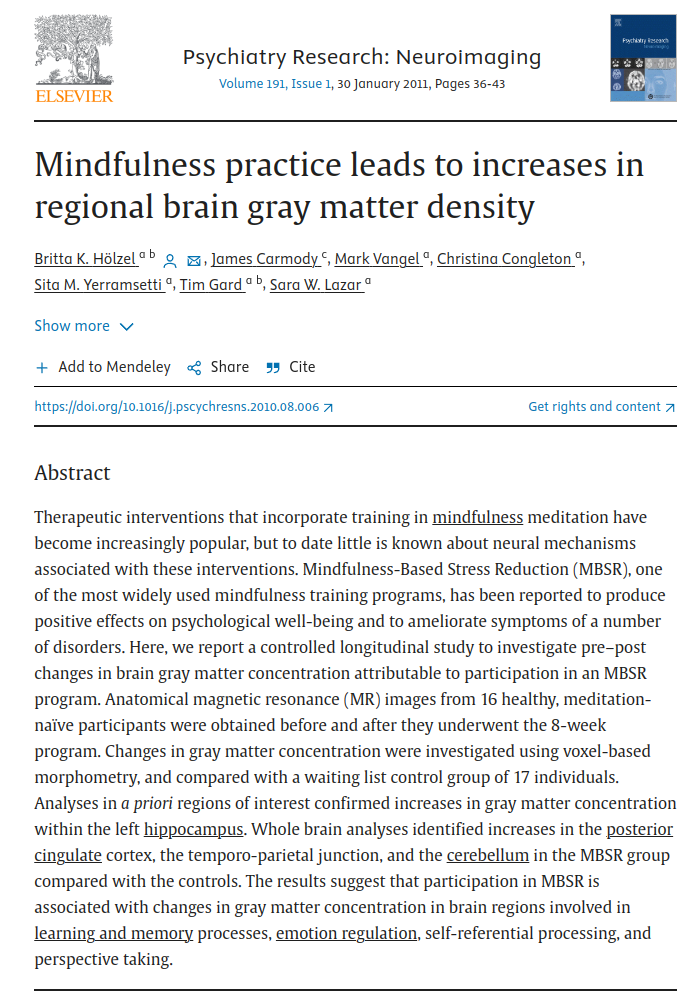Therapeutic interventions that incorporate training in mindfulness meditation have become increasingly popular, but to date, little is known about neural mechanisms associated with these interventions. Mindfulness-Based Stress Reduction (MBSR), one of the most widely used mindfulness training programs, has been reported to produce positive effects on psychological well-being and to ameliorate symptoms of a number of disorders. Here, we report a controlled longitudinal study to investigate pre-post changes in brain gray matter concentration attributable to participation in an MBSR program. Anatomical MRI images from sixteen healthy, meditation-naïve participants were obtained before and after they underwent the eight-week program. Changes in gray matter concentration were investigated using voxel-based morphometry, and compared to a wait-list control group of 17 individuals. Analyses in a priori regions of interest confirmed increases in gray matter concentration within the left hippocampus. Whole brain analyses identified increases in the posterior cingulate cortex, the temporo-parietal junction, and the cerebellum in the MBSR group compared to the controls. The results suggest that participation in MBSR is associated with changes in gray matter concentration in brain regions involved in learning and memory processes, emotion regulation, self-referential processing, and perspective taking.
Mindfulness practice leads to increases in regional brain gray matter density
Publication
Psychiatry Research: Neuroimaging
Volume 191, Issue 1
Abstract
Web and Email Links
Related Listings
Journal
Psychotherapy and Psychosomatics
The effect of a 10-week meditation program on 20 patients who were undergoing long-term individual explorative psychotherapy was studied. Change in the psychological well-being of the patients and the impact of the program on the process of their psychotherapy was evaluated. Results obtained from the patients’ self-ratings and the therapists’ objective ratings demonstrated a significant and substantial improvement in most measures of psychological well-being.
Journal
Psychiatry
In the Western world today, there is a growing interest in nonpharmacological, self-induced, altered states of consciousness because of their alleged benefits of better mental and physical health and improved ability to deal with tension and stress. During the experience of one of these states, individuals claim to have feelings of increased creativity, of infinity, and of immortality; they have an evangelistic sense of mission, and report that mental physical suffering vanish (Dean). […]
Journal
The International Journal of Psychiatry in Medicine
It is hypothesized that situations requiring continuous behavioral adjustment activate an integrated, hypothalamic response, the emergency reaction. The frequent elicitation of the physiologic changes associated with the emergency reaction has been implicated in the development of diseases such as hypertension. Prevention and treatment of these diseases may be through the use of the relaxation response, an integrated hypothalamic response whose physiologic changes appear to be the cou […]

